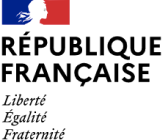Presentation of the report on referencing the French national qualifications framework to the EQF [European Qualifications Framework] for lifelong learning
This report, describing the levels of the French national framework and presented to the EQF advisory group on 23 February 2021, shows that they are comparable to those of the EQF, fulfilling the criteria set out in the Recommendation.
This advisory group is made up of national experts on the Commission for the implementation of two Recommendations: one relating to the EQF and one relating to the validation of formal, non-formal and informal learning (Recommendation of December 2012).
The French framework was created by the law of 5 September 2018 (L. 6113-1) and defined by subsequent texts (Art. D. 6113-18 and D.6113-19 of the French Labour Code, ruling of 8 January 2019).
The report describes the changes to the training and qualifications system over the past 10 years in relation to the national framework, its characteristics and the definition of levels of qualifications (registration with the RNCP). It explains how the criteria are met for acceptance of the framework by the group of experts.
Annex 3 of the Recommendation sets out 10 criteria to allow understanding of the levels in a Member State’s qualification framework and their comparison with those of the European framework.
Some of the criteria are formal (publication of the legal skills of the organisations participating in the referencing, commitment to publish on the Europass portal – criteria 1 and 9).
Others are more technical, such as:
- taking the learning outcomes description as a basis, being linked to procedures for validating prior learning (criterion 3);
- integrating qualifications into the national framework in a transparent manner (criterion 4);
- implementing quality assurance procedures (criteria 5 and 6);
- proving the relationship between the national levels and those of the EQF and having them guaranteed by the competent authorities (criteria 2 and 8).
Criterion 8 specifies that a referencing report can also include self-qualification of higher education diplomas according to the Framework for Qualifications of the European Higher Education Area. This is the option that was chosen, since the French Ministry of Higher Education had not yet carried out this referencing specified by the Bologna Process.
Two international experts were involved in drafting the report (criterion 7): a former representative of Luxembourg on the EQF advisory group and a Romanian university professor, both experts in the field.
Finally, the Member State undertakes to indicate the European framework levels on its qualifications (criterion 10).
The report was also reviewed by a representative of the Council of Europe, a representative of CEDEFOP (the Commission agency specifically responsible for vocational training), as well as by three experts from the advisory group.
Drafting was carried out by a drafting committee made up of members from France compétences and the professional qualifications committee (ministries, representatives of social partners, employees and employers: the CPME [Confederation of Small and Medium Enterprises] and the CGT [General Labour Confederation]).
A reading committee made up of other members of the qualifications committee (mainly social partners), the consular chambers (trades and industry) as well as the CTI and the HCERES reread the project and as many comments as possible were taken into account.
For instance, a proposal was made to the EQF expert group to accept correspondence between the French levels and their equivalent European levels, with the exception of level 1, for which no clear correspondence exists since is not described in terms of descriptors and does not include any qualification. This request was accepted.




